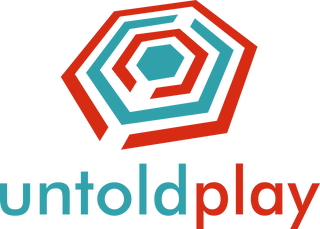One of my favourite ways to get inspiration for creating learning games is to look at as many different kinds of games as possible and ask, how do they tick? What makes them successful, how do they work? And how could we learn from that to design and build learning games and to gamify learning experiences?
Fantasy Premier League is a hugely successful game. In the 2022-23 season, it has over ten million players. Other, similar games have plenty more. And even if you're not a football fan, you can take some of the ideas from this game and apply them to any kind of learning.
Fantasy Football gives players a stake in a real-life situation
The game is based on what's happening in real life. At the start of the season, FPL players buy fifteen real-life players who play in the English Premier League. And then each week you choose which eleven will play, and pick a captain who gets double points.
Add up the scores for the eleven players you picked in your first team and you have your score for that game week – you’re competing against the other ten million players (and more importantly, your friends in a mini-league) by building your score each week.
There are rules about how you choose your players, how many players you can afford, how you can transfer them in and out week by week, and how many points they score for various actions and achievements.
So, each week players are making transfers, picking players and captains and earning points, all based on who they think will do well that week..
A game layer on the world means you can base game results on real-life
Things are happening in a kind of game layer, based on things that happen in the real world that that game layer sits on top of. These are real life events: these football matches will be happening anyway. What FPL does is give players a stake in what happens, and ask them to make predictions and choices, and to win or lose based on those choices.
You can take that idea of a game layer – that when a real life event happens, it has a game effect – and apply it to almost anything. It doesn't have to be football and football matches. Fantasy football illustrates how motivating this approach can be, with millions of players worldwide each season.
But what kinds of other real-life events could players try to predict, or score points for? Where else could we encourage people to evaluate real-life situations and predict and choose, earning points, or not?
The game layer can sit on top of a range of events
As well as real-life, unfolding events like a football season, you could use a recording. For example, a programme like Dragons' Den. If players haven't watched it, you could pause it at various points and ask: who's innovation will win, or who's doing the best job of influencing?
You could also do this with a kind of case study in stages. Players could pick out which person they think is going to do best or what kind of things are going to happen. And get points on that basis.
You could use actors acting out a scene and being paused, and players saying what they think will happen, or predicting or choosing things within the game layer, getting rewards if they make good choices.
You could use a game layer to teach almost anything
There are few limits to what you could use this for. For talent management, by looking at how people progress their careers. Innovation, by looking at the success of ideas. Projects or Change, by looking at how successful projects or changes are going to be, or whether they're going to hit various metrics
Anywhere you see or can simulate an event or a series of events that progresses, you can put a game layer on top. Particularly if an important part of your learning is for learners to read, evaluate, predict and make decisions in that environment. The game layer helps motivate and engage them, and gives them feedback on which choices have been more successful.
Think about how much more people care about a horse race or a sports tournament when they have a bet on or a sweepstake. Even pulling a team name out of a hat can have this effect. There’s a reason for the phrase ‘a horse in the race’.
People even create game layers like this to entertain themselves, playing Bingo with corporate buzzwords for example. The game layer could be about observing as well as about predicting. And predictions can come in many forms, from buying shares or players to bidding on ‘owning’ or backing teams or people, to picking out dates when things will happen.
What could you put a game layer on top of?
I’d love to hear your ideas about how to use game layers. Is this something you’ve done? Or can you think of something inspiring you could do with this train of thought? Let me know.
[Based on the video Learning from Games: Game Layers on Real Life]

